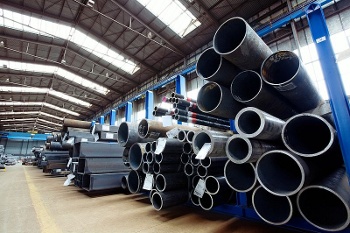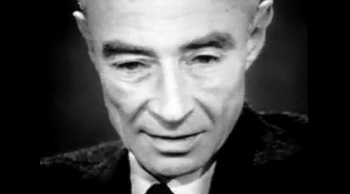The Internet - Destroyer of Worlds
January 23, 2013
Nowadays, you really need to believe in the idea that when
technology closes one door, it opens another.
Economists are fond of citing the demise of
buggy-whip manufacture as an example of the effect of
disruptive technologies. The problem, today, is that older things are now being destroyed at such a rapid rate that tremendous
inefficiencies are generated. These include
unemployment, and the
environmental consequence of throwing away a lot of old stuff.
About a decade ago, there was a
video store within a five minute's drive from my house, no matter which direction I decided to travel. At the end of last year, when I went to the only video store in the area at a distant
shopping mall while looking for a last minute
Christmas gift, they didn't have what I wanted. Similarly, when was the last time you passed a
travel agency in your travels? The shop that once housed our local travel agency now buys
gold.
There was a
Circuit City store just a three minute's drive from my house. It no longer exists, and the
Best Buy store where I bought an
HD television just two years ago, may shortly cease to exist in its present form. If that happens, I would lose my usual source of
toner cartridges for my
printer. Best Buy was recently described on an
Internet message board as an
Amazon showroom.
Many years ago, before
distance learning and
online universities popped up on the Internet, I had my own idea of how
education could be improved. What if every
college course was taught by the single best
professor in the subject area? If
Richard Feynman were alive today, how wonderful it would be to have him teach
introductory physics in the style of
The Feynman Lectures on Physics!

As we all know, the Internet is a "series of tubes."
High speed Internet, of course, needs very large tubes.
(Via Wikimedia Commons))
The thing that troubles
university administrators is the fact that most of an
undergraduate education in any subject area requires just an Internet connection and the twelve best professors in the world. There is a need, however, for
laboratory instruction in the
sciences, so some
brick and mortar university
infrastructure is still required.
Tuitions, however, would plummet, while the students would have far better instruction than they ever had at any particular university.
After their second
drink, even
university presidents will admit that much of their school's tuition is based on
branding. Some universities charge huge tuitions with the assumption that their professors are better than the others; but, economists will assert that the
marginal utility isn't worth all that money. When the Internet serves up the best professors, ever, what would be left?
Scientific publication has been vastly changed by the Internet.
Publishers are no longer the
gate-keepers of scientific knowledge. Regular readers of this blog enjoy the many references to
arXiv preprints. ArXiv, and journals such as
PLOS ONE, are instant gratification for scientists.
Open access journals are proliferating. I recently received an email notice that the
IEEE will launch three new open access publications in 2013.
One of the last bastions of hefty profits for publishers, college
textbooks, is under siege by several collaborative efforts. When the hurdle of printing a book on
paper is removed, things become all too easy; so much so, that the
profit, whether
monetary or just a warm, fuzzy feeling, goes to the
authors.
I wrote about online learning in a
previous article (Online Learning, August 20, 2010). One important point I made in that article is that an education is not just about the teaching. It's also about the learning. As
Mark Twain supposedly said, "Never let your schooling interfere with your education."[1] Many of the useful things I've learned have been outside a classroom; and, this is likely true for the many people who refuse to be distracted by
social networking and
ephemeral entertainment sources.
While other universities were attempting to monetize Internet instruction,
MIT decided in 2002 to share its
lecture materials,
homework assignments and
exams online at no charge.[2] A surprising
statistic is that at the time I wrote that article, nearly half the visitors to the MIT courseware site were not students enrolled at other universities, or their professors, but independent learners.[2]
I don't usually quote myself, but in reading my older article, I can't resist quoting the following:
"One problem we may never solve is having too many people trained in the wrong field. That's why we have highly educated people working at fast-food restaurants ("You want some Wittgenstein with that?")."[3]
The title of this article is inspired by the passage in the
Bhagavad Gita made famous by
J. Robert Oppenheimer. Oppenheimer, known as the "father of the
atomic bomb," but more properly should be called the "father of
Big Science," recalled the passage at the successful culmination of the
Trinity Test. The passage has Vishnu saying, "Now I am become Death, the destroyer of worlds."[4]

J. Robert Oppenheimer recalling his Bhagavad Gita quotation spoken after the Trinity Test.
Still image from a
YouTube video clip.)[5)]
![]()
References:
- Mark Twain quotations page on Wikiquote. This quotation, which is repeated often, is possibly apocryphal.
- Cecilia d'Oliveira, Stephen Carson, Kate James and Jeff Lazarus, "MIT OpenCourseWare: Unlocking Knowledge, Empowering Minds," Science, vol. 329. no. 5991 (July 30, 2010), pp. 525-526.
- Online Learning, Tikalon Blog, August 20, 2010.
- Oppenheimer is quoting from the 1944 Prabhavananda-Christopher Isherwood translation of the Swami Vivekananda text of the Bhagavad Gita. Some think that a better translation would be, "I am become Time, the destroyer of worlds."
- YouTube clip of a 1965 interview with J. Robert Oppenheimer about the Trinity explosion, shortly before his death on February 18, 1967. This YouTube video clip is part of an NBC White Paper, "The Decision to Drop the Bomb," produced by Fred Freed.
Permanent Link to this article
Linked Keywords: Technology; economist; buggy-whip; disruptive innovation; disruptive technology; efficient-market hypothesis; inefficiency; unemployment; environmentalism; environmental; video store; Rockaway Townsquare; shopping mall; Christmas; gift; travel agency; gold; Circuit City; Best Buy; High-definition television; HDTV; toner cartridge; printer; Internet; Internet forum; message board; Amazon; distance education; distance learning; online university; education; college; professor; Richard Feynman; introductory physics; The Feynman Lectures on Physics; series of tubes; >High speed Internet; Wikimedia Commons; university administrator; undergraduate education; laboratory; science; brick and mortar; infrastructure; tuition; alcoholic beverage; drink; university president; brand management; branding; marginal utility; scientific literature; Scientific publication; publishers; gate-keeper; arXiv; preprint; PLOS ONE; Open access journal; Institute of Electrical and Electronics Engineers; IEEE; textbook; paper; profit; money; monetary; author; Mark Twain; social networking; Lolcat; ephemeral entertainment source; Massachusetts Institute of Technology; MIT; lecture material; homework assignment; exam; statistic; Wittgenstein; Bhagavad Gita; J. Robert Oppenheimer; nuclear weapon; atomic bomb; Big Science; Trinity Test; YouTube; Swami Prabhavananda; Christopher Isherwood; Swami Vivekananda.